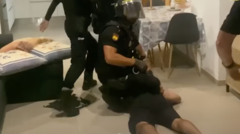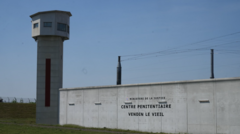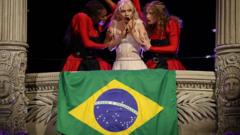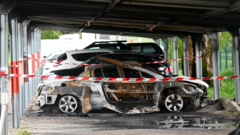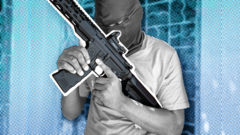In Rio, criminal factions are challenging religious tolerance by mixing their drug operations with extremist beliefs, forcing their interpretations of Christianity on local communities.
**Religious Extremism and Drug Traffickers: The War on Beliefs in Rio's Favelas**
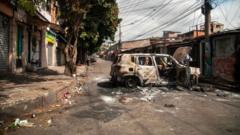
**Religious Extremism and Drug Traffickers: The War on Beliefs in Rio's Favelas**
The intertwining of faith and crime fuels a dangerous narrative in Rio de Janeiro's drug gangs.
In the gritty favelas of Rio de Janeiro, a disturbing phenomenon is emerging where drug-trafficking gangs blend their operations with elements of evangelical Christianity. This unsettling fusion is particularly evident within the ranks of the Pure Third Command gang, known for branding their seized drugs with symbols, including the Star of David, not in homage to the Jewish community, but rather as part of their distorted biblical beliefs.
These gangsters perceive themselves as "soldiers of crime," claiming that their dominance is divinely sanctioned, which represents a stark deviation from the teachings of Christianity. The gang has extended its reach, controlling a cluster of favelas referred to as the "Israel Complex," after a perceived divine revelation by one of its leaders, according to theologian Vivian Costa, who explores the intersections of crime and faith in her book, "Evangelical Drug Dealers."
One notable figure in this complex narrative is Pastor Diego Nascimento. A former gang member of the infamous Red Command, Nascimento found salvation after battling addiction and despair. His transformation came from a gangster who preached the gospel while gripping a gun. Despite his conversion, Nascimento emphasizes that genuine faith cannot coexist with criminal activity.
As evangelical Christianity rises in Brazil—potentially surpassing Catholicism—its appeal resonates particularly in impoverished neighborhoods plagued by gang violence. Critics argue that gangs like the Pure Third Command are not only leveraging their religious ideology to consolidate power but are also suppressing other faiths, particularly Afro-Brazilian traditions. Sociology professor Christina Vital observes that people in the Israel Complex are hindered from practicing their beliefs publicly, fostering a climate of religious intolerance.
The crackdown on Afro-Brazilian faiths escalates this tension, with violent incidents against followers becoming increasingly common under the guise of religious dominion. Dr. Rita Salim from the police department notes that these acts of intimidation and violence wield particular fear as they are systematically enforced by organized crime.
This worrying trend has rapidly escalated since the early 2000s, morphing into what Babalorixá Marcio de Jagun describes as a "neo-Crusade," where illegal factions justify their actions as divine missions. While crime and faith have long been intertwined in Brazil, the current wave of "Narco-Religiosity" presents a grave threat to religious freedom, challenging fundamental rights protected under Brazil's constitution and further ensnaring local communities in a cycle of fear and oppression.



